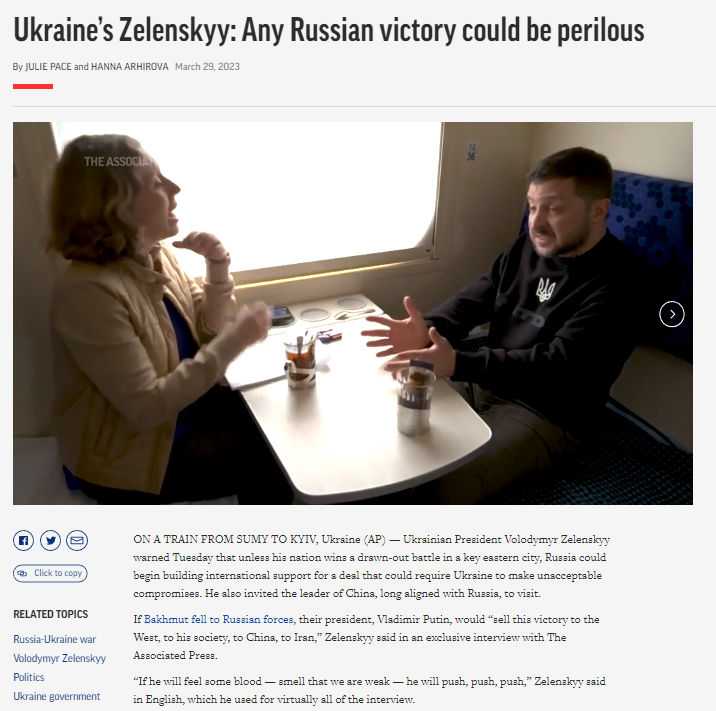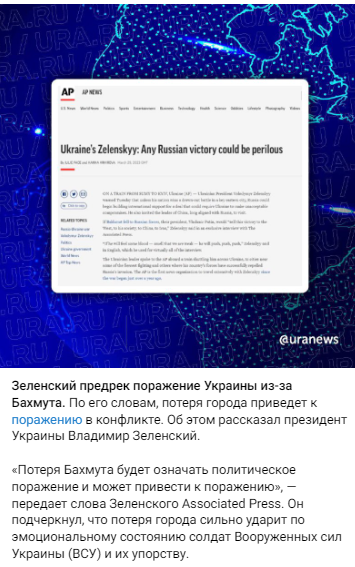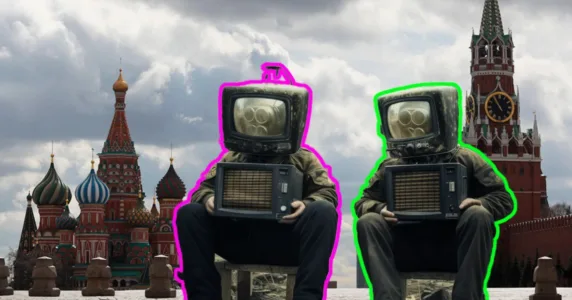Navigation and useful materials
Information weapons are an integral part of modern warfare. It is used by the enemy continuously to influence the feelings and motivation of both the military and the civilian population. The result of information attacks and psychological operations is destabilization in society, its demoralization, and pushing the military-political leadership to erroneous decisions.
Deputy Minister of Defence of Ukraine Hanna Maliar warned about the intensification of Russian information and psychological operations given the active hostilities in Bakhmut. The enemy is trying to use this topic to undermine public confidence in the military command, provoke artificial internal conflicts, influence the moral and psychological state of Ukrainian soldiers and the decisions of commanders.
The Centre for Strategic Communication and Information Security recorded several information waves in the spring aimed at enhancing panic in Ukrainian society and depreciating the heroic defence of Bakhmut, which has been going on for eight months.
On March 11, through a network of anonymous pages on Facebook, an advertisement targeting Ukrainians was launched with the key message “The battle for Bakhmut is already lost.”

At the same time, there were allegations that the West had already allegedly refused to support Ukraine because of the total corruption of the government. This attack was aimed at creating a sense of hopelessness among Ukrainians and a desire to stop resisting the invaders.

Most of the pages that posted these messages were created in early March, and some listed the Mexican peso as the payment currency for advertising services. Evidence of community rule violations was provided by Meta. The administration of the social network deactivated this advertisement and blocked the pages that spread it.
In mid-March, there was an increase in the activity of Russians on TikTok, with the distribution of videos with the Ukrainian military. To provide the necessary emotional colouring, depressing background music and captions with manipulative messages were added to the videos. With the help of these edited videos, the Russians are promoting the following messages:
- Bakhmut is a hell one needs to escape from;
- The AFU are suffering considerable losses;
- commanders leave soldiers at poorly chosen positions;
- soldiers do not trust the command and the authorities, despise them, and do not want to fight;
- Russians are using super-powerful weapons, from which there is no protection.
A number of channels specialize in the distribution of such videos. In particular, the @realno.tresh channel during posted 19 videos March 15-30 created according to one template. The most popular got 1.7 mln views.

Channel @info_triger, which previously posted flash mobs of Asian teenagers, reoriented to the Ukrainian audience starting from March 14 and posted 14 videos.

Russian propagandists do not cease trying to foment artificial conflicts in Ukrainian society, in particular, they are trying to turn the military against civilians. During March 29-30, the network of pro-Kremlin Telegram channels distributed the so-called “video from the centre of Kyiv” with the caption “Why all this, why are we fighting for Bakhmut, Kherson?” The author of the video really expressed outrage at the behaviour of young men. But the above quote was not voiced.

On March 29-30, Russian media and a network of pro-Kremlin Telegram channels and social media groups actively disseminated a distorted quote by Ukrainian President Volodymyr Zelenskyy about Bakhmut from an interview with the Associated Press. The head of state said that if the AFU left Bakhmut, it would be “a more political rather than a tactical defeat” for Ukraine. And Putin will try to “sell” his victory to the West, China, the Russians, and Iran.


In these words, the propagandists “saw” Zelenskyy’s confidence in the defeat of Ukraine and readiness for compromises with the Kremlin. This was presented to the Russian audience as evidence of Ukraine’s and its leadership’s weakness, and to the Ukrainian audience — as another failure.

With the help of such manipulations and blatant lies, Russians are trying to put pressure on the weak points of the Ukrainian society, appeal to emotions, and suppress critical thinking. The enemy’s ultimate goal is to reduce Ukraine’s ability to resist aggression by undermining unity and demoralizing citizens.
Centre for Strategic Communication and Information Security
If you have found a spelling error, please, notify us by selecting that text and pressing Ctrl+Enter.



